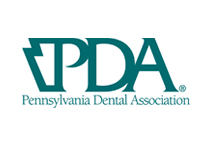Your oral health is more important than you may think. Learn how your oral, dental, and gum health can affect your overall health.
Did you know that your oral health can reveal information about your overall health, or that problems in your mouth can have an impact on the rest of your body? Learn more about the relationship between your oral health and your overall health to protect yourself.
What is the relationship between oral and overall health?
Your mouth, like the rest of your body, is teeming with bacteria, most of which are harmless. However, because your mouth is the gateway to your digestive and respiratory tracts, some of these bacteria can cause disease.
Bacteria are normally kept under control by the body’s natural defenses and good oral health care, such as daily brushing and flossing. However, if proper oral hygiene is not practiced, bacteria levels can rise to the point where they can cause oral infections such as tooth decay and gum disease.
Decongestants, antihistamines, pain relievers, diuretics, and antidepressants, for example, can all reduce saliva flow. Saliva washes away food and neutralizes acids produced by bacteria in the mouth, aiding in the protection of the body against microbes that multiply and cause disease.
Oral bacteria and the inflammation associated with a severe form of gum disease (periodontitis), according to research, may play a role in some diseases. Furthermore, certain diseases, such as diabetes and HIV/AIDS, can reduce the body’s resistance to infection, exacerbating oral health issues.
What conditions are associated with oral health?
Your oral health may play a role in a variety of diseases and conditions, including:
Endocarditis: This infection of the inner lining of your heart chambers or valves (endocardium) usually happens when bacteria or other germs from another part of your body, such as your mouth, spread through your bloodstream and attach to specific areas in your heart.
Cardiovascular disease (CVD): Although the link is not fully understood, some research suggests that inflammation and infections caused by oral bacteria may be linked to heart disease, clogged arteries, and stroke
.
Periodontitis: Complications during pregnancy and childbirth Premature birth and low birth weight have been linked to periodontitis.
Pneumonia: Certain bacteria in your mouth can enter your lungs and cause pneumonia and other respiratory diseases.
Certain conditions may also have an impact on your oral health, such as:
Diabetes: Diabetes weakens the body’s resistance to infection, putting your gums at risk. Diabetes appears to increase the frequency and severity of gum disease.
According to research, people with gum disease have a more difficult time controlling their blood sugar levels. Diabetes control can be improved with regular periodontal care.
Osteoporosis: This bone-weakening disease has been linked to tooth loss and periodontal bone loss. Certain osteoporosis medications carry a minor risk of causing jaw bone damage.
Alzheimer’s: As Alzheimer’s disease progresses, so does one’s oral health.
Eating disorders, rheumatoid arthritis, certain cancers, and an immune system disorder that causes dry mouth (Sjogren’s syndrome) are among the other conditions that may be linked to oral health.
Inform your dentist about any medications you’re taking as well as any changes in your overall health, especially if you’ve recently been ill or have a chronic condition like diabetes.
How can I safeguard my oral health?
Practice good oral hygiene on a daily basis to protect your oral health.
- Brush your teeth twice a day for at least two minutes each time. Brush your teeth with a soft-bristled brush and fluoride toothpaste.
- Floss every day.
- Mouthwash can be used to remove food particles that have remained after brushing and flossing.
- Consume a healthy diet and limit your intake of sugary foods and beverages.
- Replace your toothbrush every three to four months, or sooner if the bristles are worn or splayed.
- Make regular dental checkups and cleanings a priority.
- Tobacco use should be avoided.
Also, if you have an oral health problem, contact your dentist right away. Taking care of your teeth and gums is an investment in your overall health.









